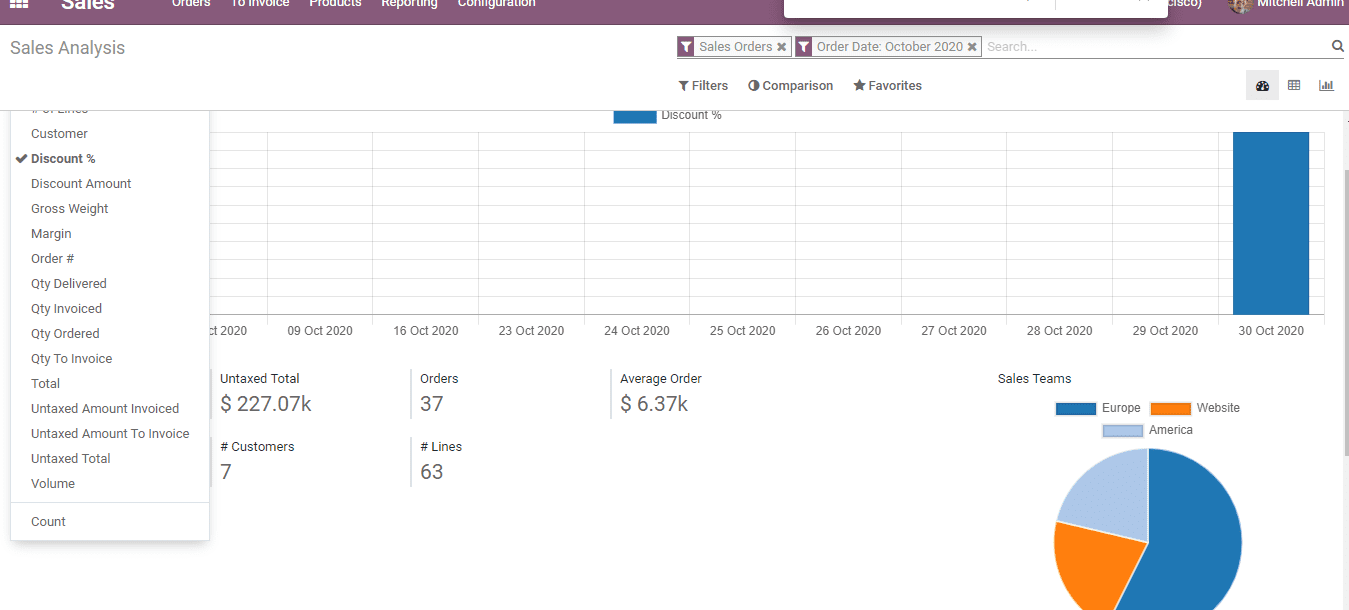-
- Acuerdos de compra
- Advertencia
- Atributos del producto
- Categoria de ProductO
- Coincidencia de Recibos de Compra y Facturas de 3 Vías
- Compra
- Gestión de Productos
- Gotero
- Ordenes de Compra
- Receptores productos
- Reportes
- RequestForQuotationPurchaserOrder
- Unidad de Medida
- UnitfMeAsurectatecturaciones
- Vendorbills
- Vendormanagació
-
- Administrador
- Billofmateriales
- CREACIÓN DE DOCUMENTOS
- Categoría de equipos
- Configuraciones de WorkCenters
- CorrectiveMaintenancerequest
- Creando Merman Oferta
- Creando una orden de reparacia
- Enrutamiento
- Fabricación
- Gerencia
- Gerencia de Reparacia
- Gestión de la Calidad
- Gestión del Ciclo de Vida del Producto
- HowtounBuildOrder
- Manejo de Mantenimiento
- ManufacturingOrderManagement
- Mermanes de Creendo
- Nobildaproducto
- Orden
- Planificación de Trabajadores
- Planificante
- Preventivemaintenancerequest
- Productora de administración
- QualityControlpoints
- Reportes
- Subcontratacia
- WorkCenters y Rutings
- Workcenters
-
- Ajustes de Inventario
- Anuncios
- Capacidad de Productos
- Categorizacia de productos
- Configuración del producto
- Confirmación de Correo Electrónico de Entrega
- Consiguio un
- Coste de Aterrizaje
- Entrega
- Gestión de Almacenes
- Horario de Programació
- IntegratingthirdPartyshipper
- Inventario
- Operaciones de inventario
- Paquetes de Entrega
- Parpadeo
- Planificador
- ProductVariants
- Ratidrategas
- Reglas y rutas
- Reportes
- SMSCONFirmationAtDelivery
- Ubicacia
- Unidades de Medida
Odoo 14 book
Product And Taxes
Applying Default Taxes on Products or Sales Order
Odoo helps you to automatically update Tax/Duties charged on a product in a particular country. This feature helps to generate default charges set in sales order and invoices. This will be done based on the details provided in the productâs Invoicing tab. This feature can be useful when your organization engages in a deal with an organization operating in the same country or state.
This feature helps all the new products/ items entered in the Odoo to take the default charge set in the Accounting/Invoicing settings.

However, you can change the default charges set for any item by going to Invoicing>Configuration> Settings
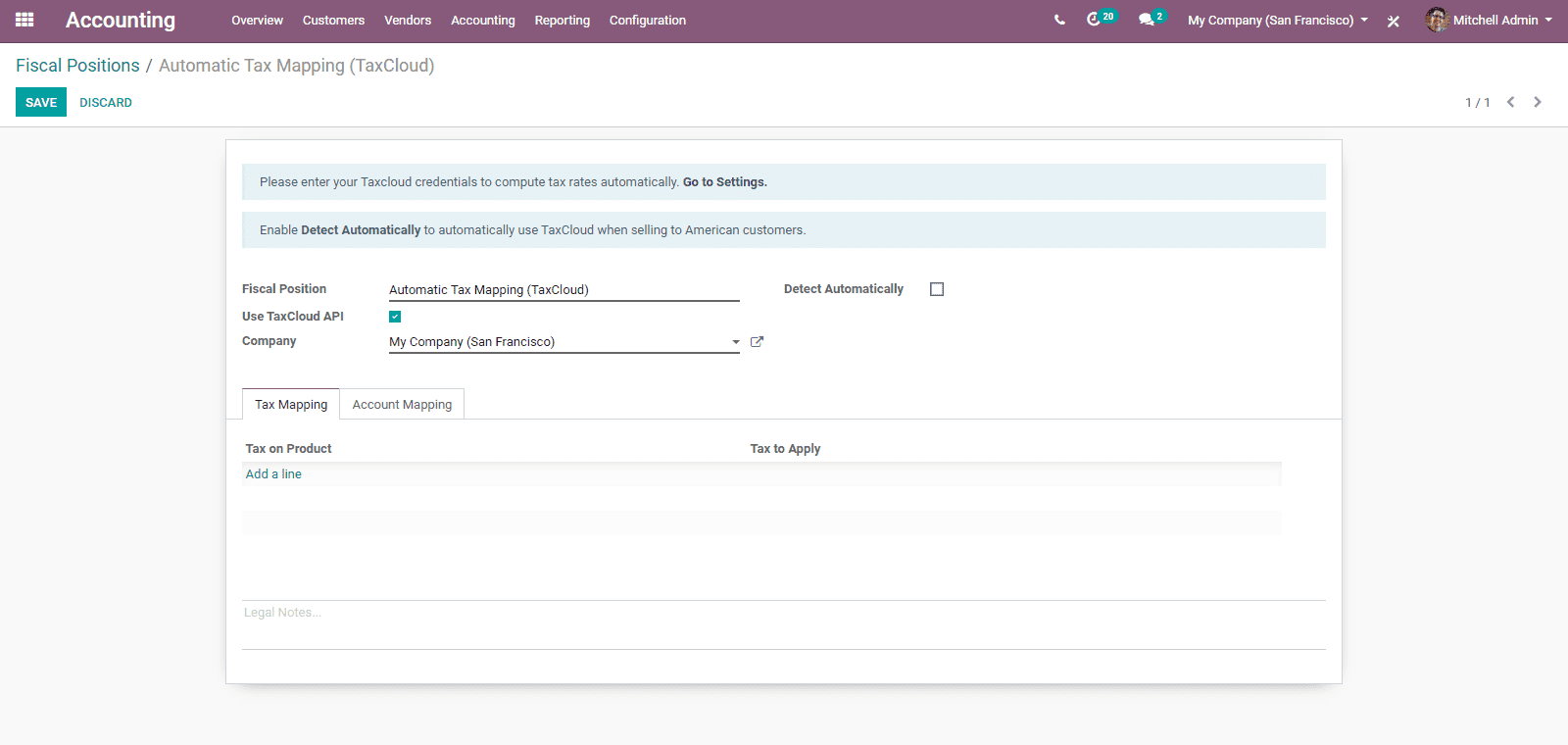
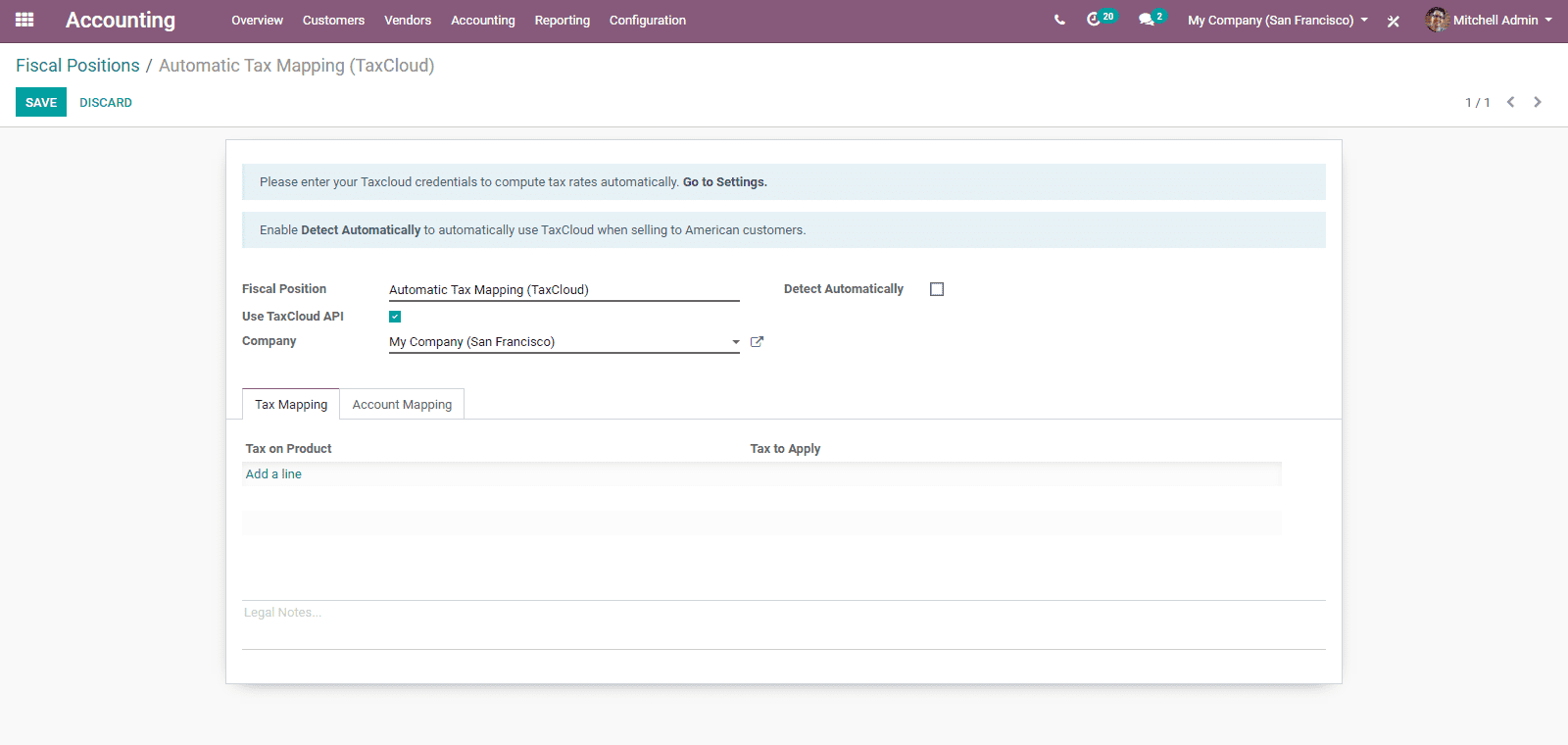
For multi-companies, the sales and purchase taxes will have different value based on the operations of the company. In such instances, you can login into the different companies and change the field for each company.
Applying taxes conditioning customer status or localization
The sales tax is always related to client status or localization. In order to outline diverse charges, Odoo has introduced the element Fiscal Positions.
The fiscal position manages a lot of principles that maps default charges (as characterized on item structure) into different tax assessments. In Odoo, the fundamental fiscal positions are organized in a way to automatically make them agree to the client confinement/localization. However, a user may have to make fiscal positions for explicit use cases. In order to characterize fiscal positions, you can go to Invoicing/Accounting ⣠Configuration ⣠Fiscal Positions
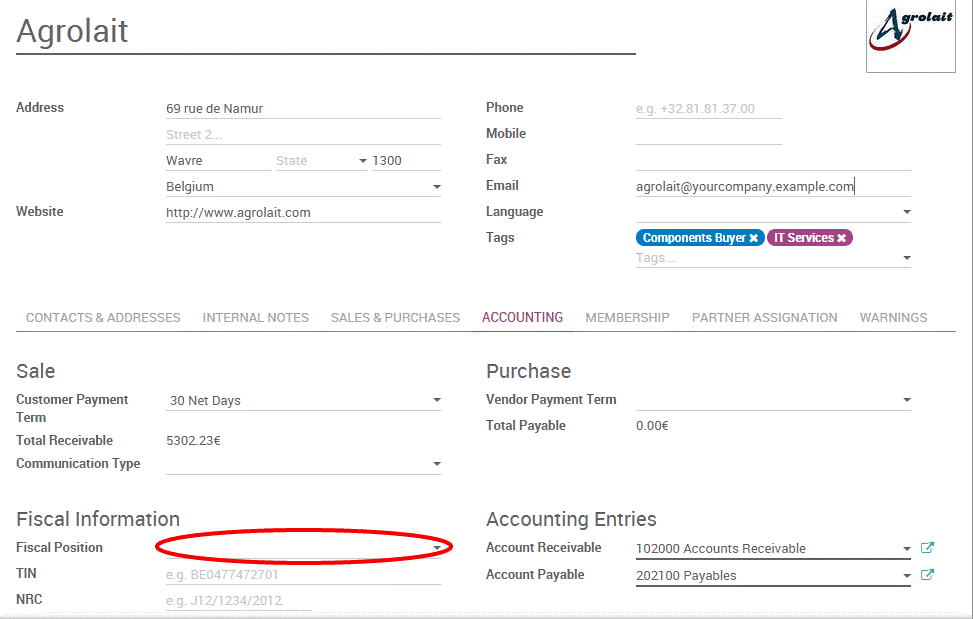
Adapt Taxes To Your Customer Status
If a client falls into a particular tax collection rule, the user will have to apply a duty mapping. By this you can create a fiscal position and allot it to your clients.

Odoo will help you to utilize the specific fiscal position for any order/invoice.
Adapt Taxes To Your Customer Address (Destination-Based)
Depending on localization, sales taxes can be of two types, origin based or destination based. Most states or countries want the seller to collect taxes based on the destination or the location of the buyer. At the same time, some others require to collect tax based on the tax rate at the sellerâs office.
If you want to depend on the destination-based rule, create one fiscal position per tax-mapping to apply.
- Here, you can Check the case Detect Automatically
- You can select a country group, country, state or city to trigger the duty mapping.

If fiscal position is chosen, then Odoo will pick the fiscal position matching to the transportation address. This will be made on making a request.
Specific use cases
In the case of some fiscal positions, you will have to evacuate a tax. Here, rather than supplanting by another, you have to simply keep the Tax to Apply field empty/ unfilled.
If you want to replace a tax by two other taxes for some fiscal positions you can do it by just creating two lines having the same Product Tax.
Sale and Purchase in Different Unit of Measure
Dealing with products in various units of measures is always very important. Take an instance when you purchase items in a country where the metric measuring standard is of utilization and sell them in a different country where the imperial framework is utilized. Here, you should change over the units. Odoo helps to work with various units of measure for one item.
In order to do this, go to Sales/Configuration / Settings and Activate Units of Measure under Product Catalogue
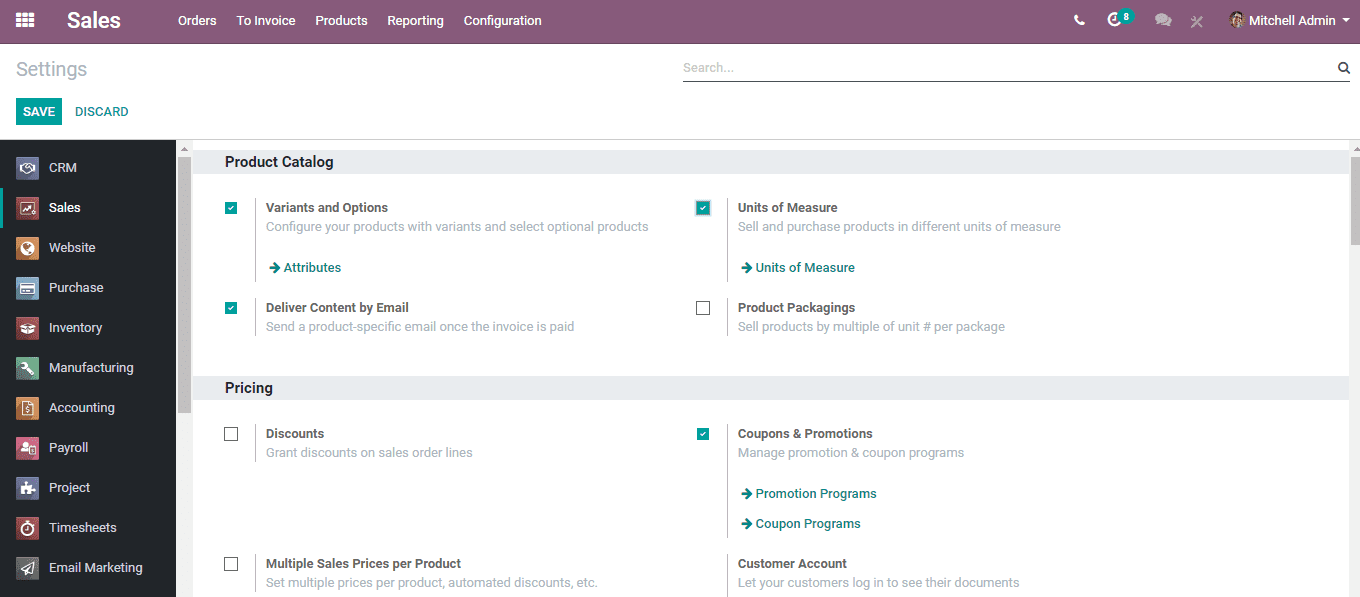
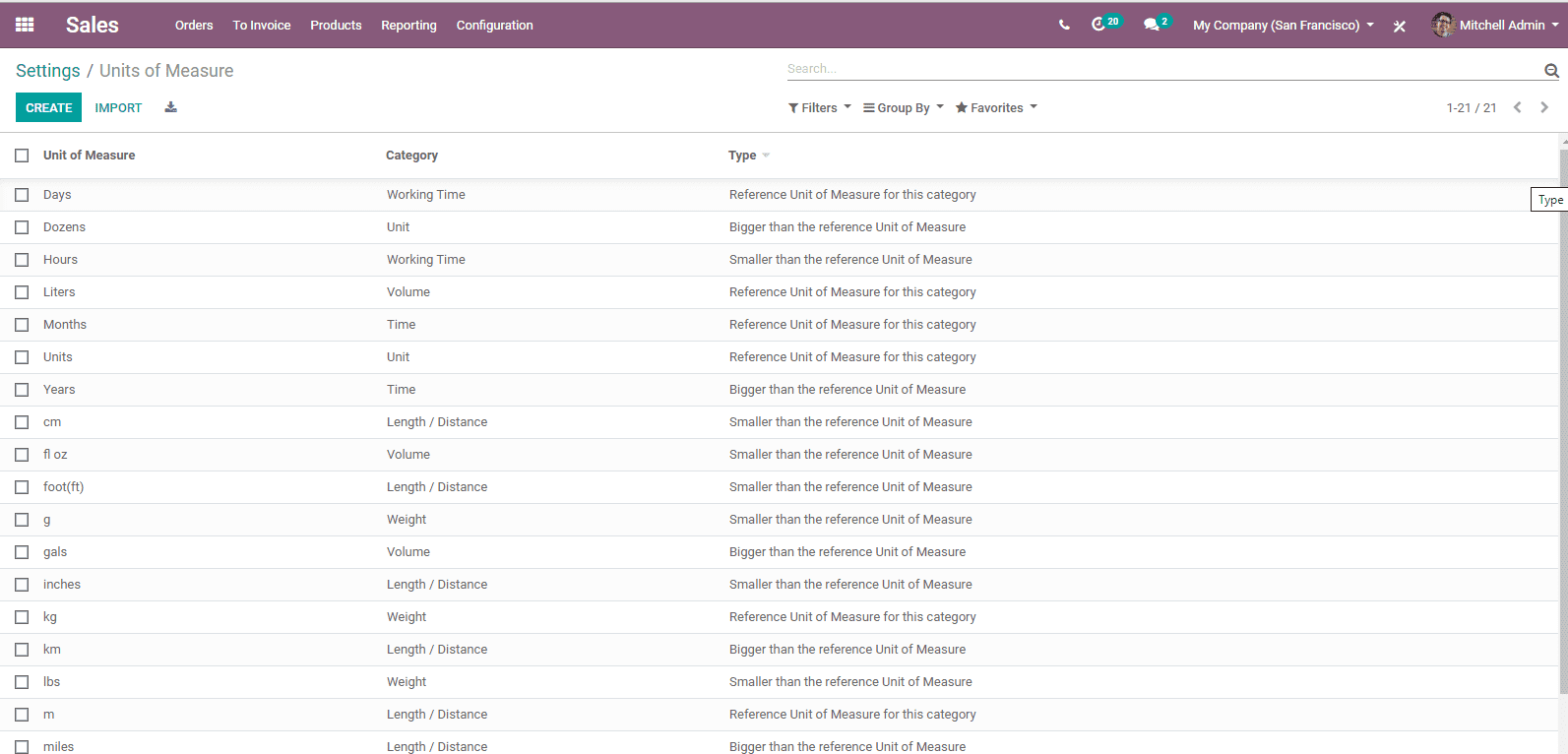
To create a new unit of measure click the create button.
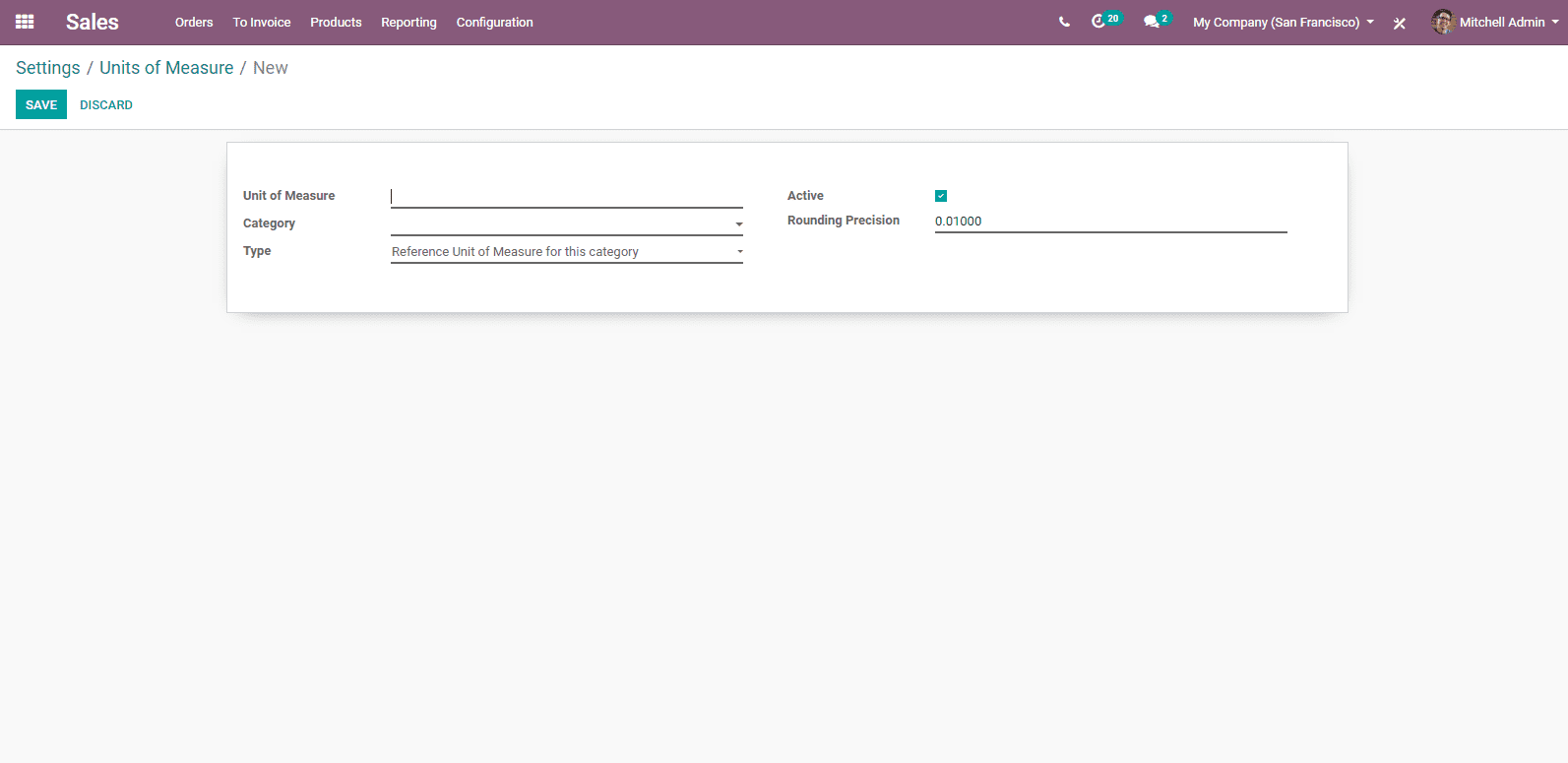
You can name units of measure and define its category. In Odoo, conversion between two units of measure is possible only if they belong to the same category. Here, the Conversion will be done based on the ratios.
Odoo automates the rounding adjustments when inter-unit exchanges are performed.
Reporting
Constant monitoring of the performance of a team is essential for the success of the business. The Reporting section of Odoo Sales plays an important role in helping a comprehensive overview of the sale performance. This helps to determine business decisions for the growth of sales.
You can generate Sales report by going to Sales>Reporting Sales
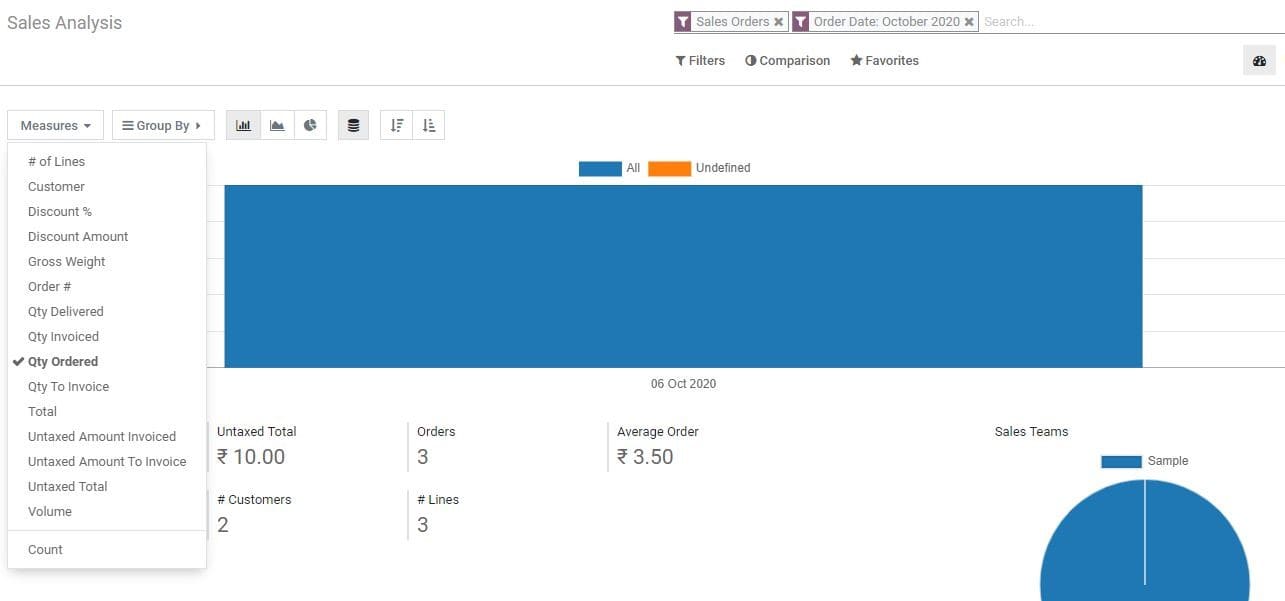
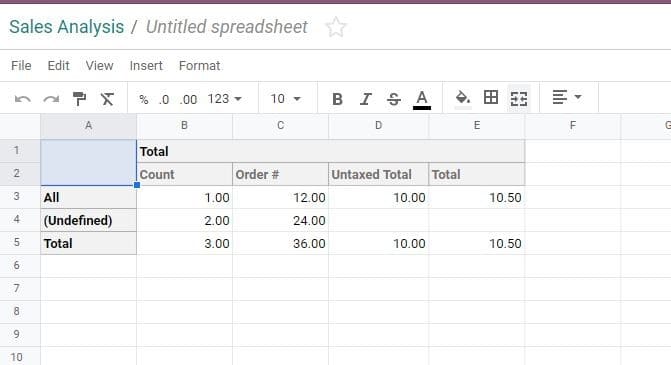
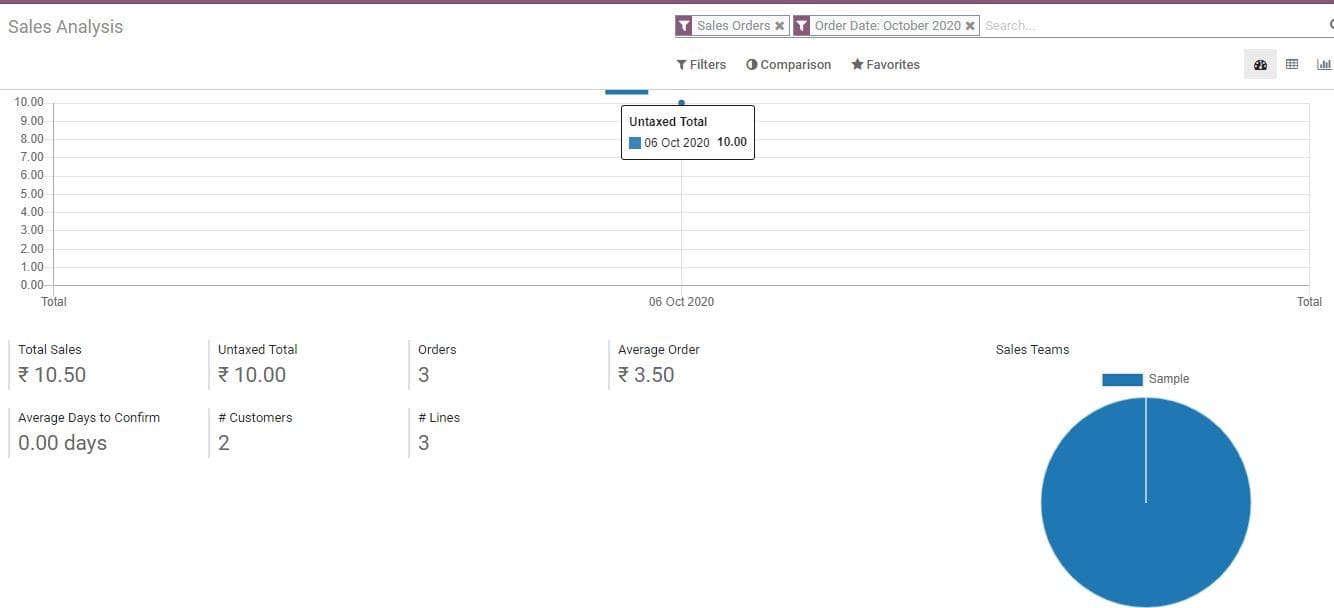
We can consider Sign as a quick method to send, sign and approve documents. This will help a user to complete the preparation of a document in a simple way by dragging and dropping blocks. This will also help the user to manage signature requests and track the status of already sent documents.
